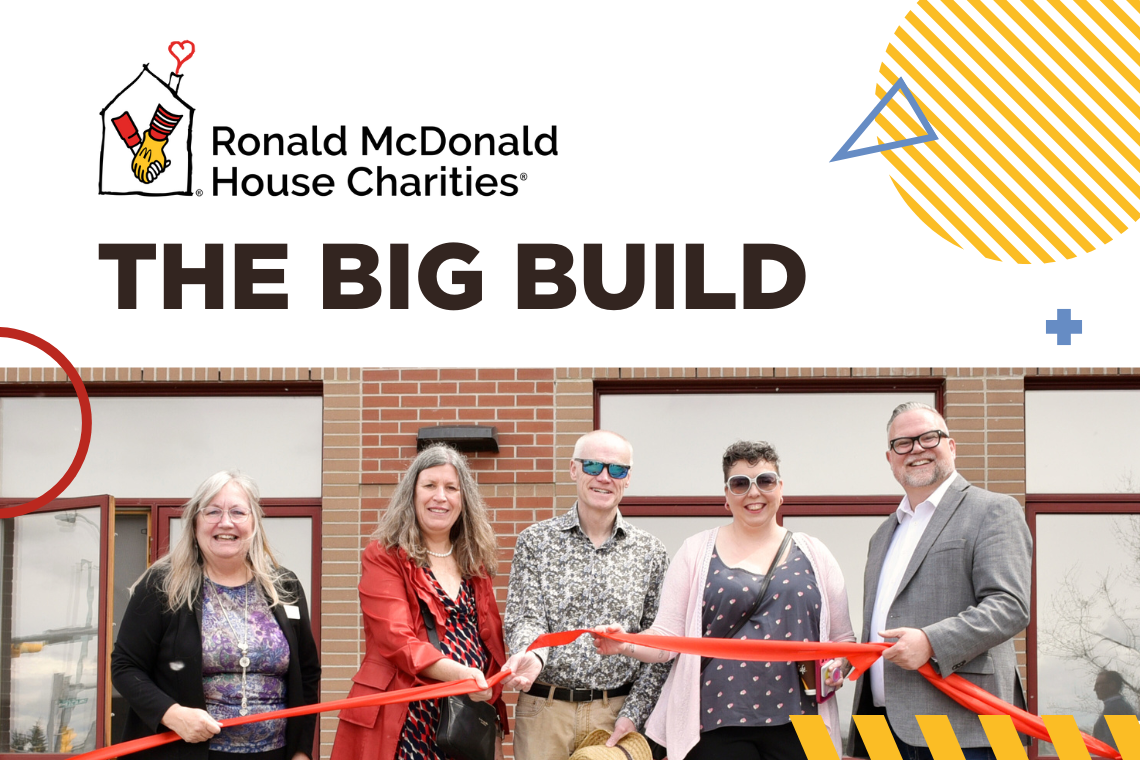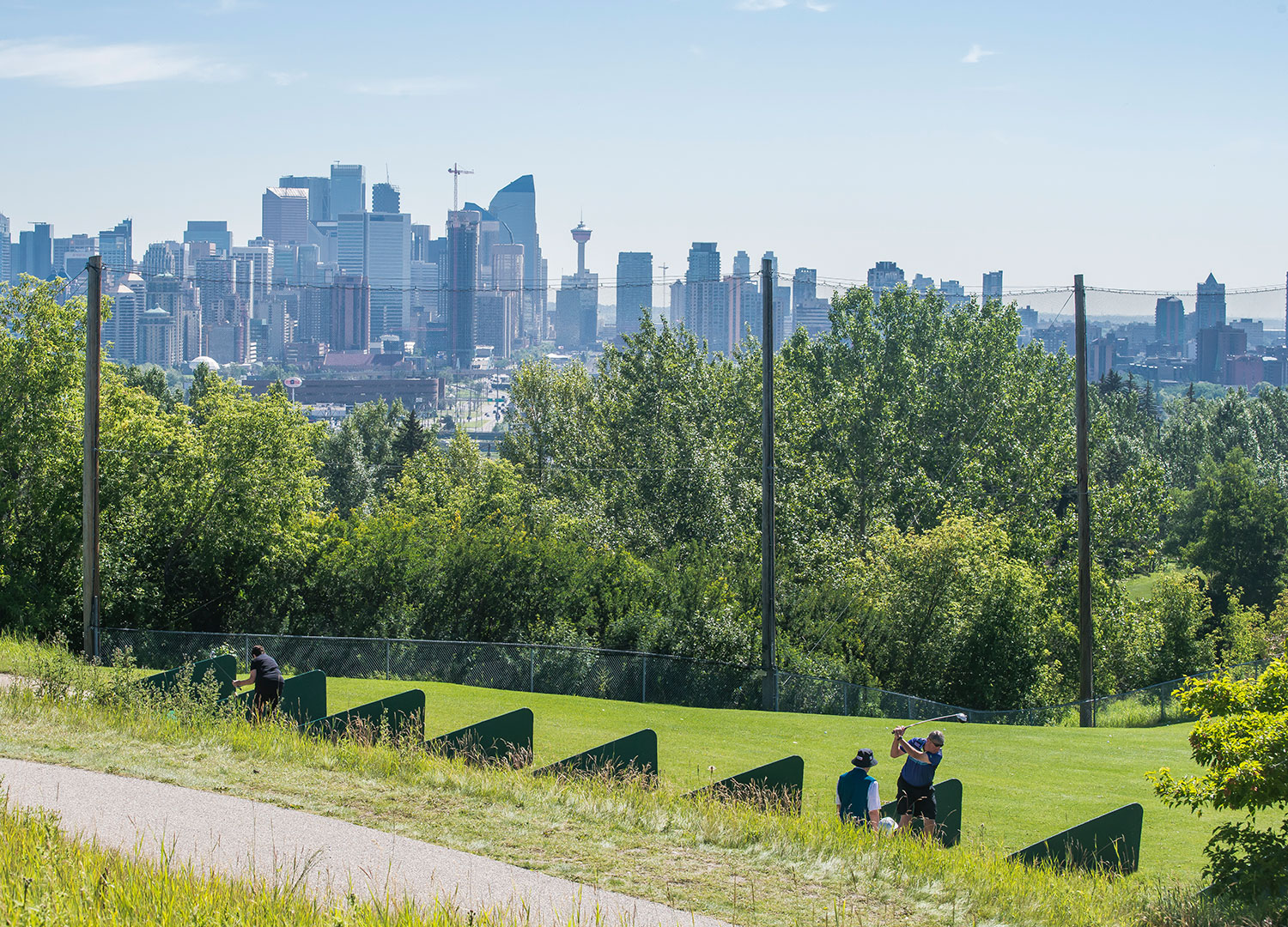
July 24, 2019 | Gerald Vander Pyl
From fairways to families: How urban golf course closures are impacting communities in Calgary and across Canada
During the 1990s and early 2000s, a wave of new golf course development swept across Canada, with many of these courses serving as centrepieces for residential communities. Since then, that growth has slowed as golf's popularity has waned. Some of those courses are now closing, opening prime real estate that, in many cases, is being redeveloped into new subdivisions.The result has been a boon for builders and homebuyers, as land becomes available for new residential development within desirable, well-established communities. However, it has also created resentment among long-time residents of these neighbourhoods, who originally purchased their homes with the golf course as a major selling point.
Bait and Switch?
Lesley Cooney-Burk lives in a house that backed onto the former Harvest Hills Golf Course, which closed in 2016 and is being redeveloped into about 700 single- and multi-family homes.
"In my view, the whole thing is a big switch," she said. "We bought property on a golf course. All the homes are designed with these big windows and decks overlooking the golf course.
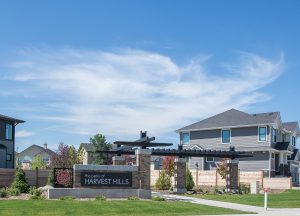 Cody Stuart / CREB®Now
Cody Stuart / CREB®Now"Now, if I look over my backyard, I've got a pile of construction dirt, orange fencing all around, and behind my house they're just in the process of putting in the roadways."
She says across the cul-de-sac, the view is now dominated by two large duplexes that are taller than any other structure in Harvest Hills. "So it's hard to forget it or look past it, really."
Across Calgary, Harvest Hills is far from an isolated case. The Shawnee Slopes Golf Course in southwest Calgary experienced the same fate and new housing developments have taken its place. The Hamptons Golf & Country Club reconfigured part of its course to free up land for new housing, which will soon see its first residents. And in 2012, Highland Park Golf Course closed and was sold, but due to City concerns about flooding and the safety of community residents, the land now sits unoccupied with development put on hold indefinitely.
"We bought property on a golf course. All the homes are designed with these big windows and decks overlooking the golf course." - Lesley Cooney-Burk, Harvest Hills resident
Chris Ollenberger, managing principal of QuantumPlace Developments, the company behind the Harvest Hills course redevelopment, says many people tend to think of golf courses as public, open space.
"But in reality, they're not. They're privately owned operations that just have a lot of visual aesthetics that are appealing," he said. "So when you come in and say to a community, 'We're starting to explore whether or not we redevelop this parcel of land, because it's no longer feasible as a golf course,' that tends to set off a lot of emotion."
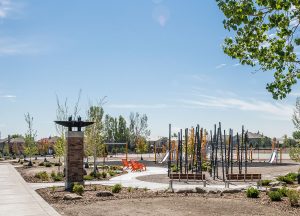 Cody Stuart / CREB®Now
Cody Stuart / CREB®NowOllenberger says Harvest Hills was a sea of single-family homes and redevelopment has created additional housing choices for new and long-time community residents. He adds empty nesters in the community who have set down roots there can now buy a home in the Parks of Harvest Hills that better suits their needs.
"Some people have downsized, they've left their single-family home and let someone else move into it with their family," he said. "And they'll take on a townhouse or a condo, because they're at that stage of life."
Ollenberger says as Calgary grows and land in some areas becomes more valuable, its owners naturally re-evaluate how best to use their land.
"Look at the success of the University District – basically, a giant dog-walking park that was owned by the province and the university. Now it's becoming a thriving neighbourhood," he said. "So, done thoughtfully, I think these are opportunities that any city should take up."
Countrywide Conundrum
Yet, many cities in Canada seem unsure about how to deal with golf course redevelopment.
In Ontario, the Town of Oakville has fought to prevent the famed Glen Abbey Golf Club from being turned into a subdivision of 3,000 new homes. So far, that fight – which included an attempt to have the golf course designated a "significant cultural heritage landscape" – has cost the town more than $9 million in legal fees. Perhaps spooked by Oakville's experience, city council in Cambridge, Ont., decided not to fight a proposed 368-unit housing redevelopment for a bankrupt golf course that faced significant opposition from area residents.
Last year, former Vancouver mayor Gregor Robertson suggested part of the city-owned Langara Golf Course could be redeveloped into a public park, which raised the ire of the city's golfers and nearby residents. Meanwhile, in June, Calgary city council voted to close the money-losing Richmond Green Golf Course at the end of the 2019 season.
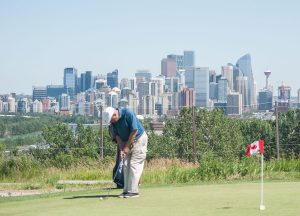 Cody Stuart / CREB®Now
Cody Stuart / CREB®NowInformation released by the City in 2018 after a Freedom of Information request by the Canadian Taxpayers Federation showed that Calgary's city-owned courses had lost more than $2 million from 2015 to 2017, with only the Shaganappi Point course paying its way. Council has since directed administration to investigate whether any city-owned courses are suitable for "decommissioning, repurposing, reconfiguring or divesting," in order to maintain the viability of its overall golf course operations.
Greg Shymanski, acting manager of golf and sport development with City of Calgary Recreation, says the Golf Course Real Estate and Development Assessment will not include McCall Lake Golf Course, since it was successfully renovated after a 2014 assessment. Richmond Green will be looked at for its potential, but it sits atop a large area of underground water infrastructure.
Shymanski says an interim report is due at council on Oct. 7, and until then, it's business as usual. "We have no plans to close or redevelop any other golf courses at this time."
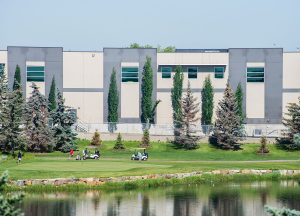 Cody Stuart / CREB®Now
Cody Stuart / CREB®NowHowever, whether municipal or privately owned, golf courses across North America are struggling, as the number of golfers decreases. Industry experts blame a variety of factors, including the 2009 recession, millennials being less avid golfers and Generation Z being completely apathetic about the sport.
According to an Ipsos study, in 2006, there were 5.95 million Canadians who played at least one round of golf per year, which represented 18 per cent of the country's population at the time. By mid-2019, the population of Canada had grown to 37.4 million, but recent estimates from Golf Canada placed the number of golfers at about 5.7 million – roughly 15 per cent of the total population. Golf Canada and PGA Canada's 2017 golf facility report also listed the number of golf courses in Canada at 2,298, second only to the United States (15,014), and just ahead of Japan (2,290) – a country with a population of 127 million people.
If local governments are destined to deal with more and more proposals for golf course redevelopment, many who have been impacted by these projects suggest there should be a better system for assessing the benefits and risks of redevelopment proposals.
"You lose a golf course and you feel bad, but not everybody's golfing anymore, it's not really a growing sport. If you do things right, you can do something to that land that creates more benefits for people, for families." - Mike Selinger, Cardel Homes
Rick Lundy was president of the Northern Hills Community Association when the Harvest Hills golf course redevelopment was approved. He says the approval process remains the most disappointing thing about what happened.
"When I look back now, we spent a lot of time, resources and effort," he said. "And at the end, what was it all for? It seemed to us like the decision was already made and they were going through the motions."
Lundy says increased traffic and similar issues are considered before any proposal is approved, but he argues more basic concerns should be factored into the equation as well.
"You build golf courses, then you build houses around them and you sell them accordingly," he said. "And then one day, that's just pulled from underneath people and their house values go way down. You know what? That's a moral issue."
New Beginnings
In south Calgary, the closing of the Shawnee Slopes course opened a unique window of opportunity for homebuyers – the chance to purchase a new-build home within a desirable, established neighbourhood.
Mike Selinger, regional president of Cardel Homes, says the company's new Shawnee Park development will span 130 acres of former golf course land, and will eventually include 500 homes and 1,000 apartment-style condos and townhomes.
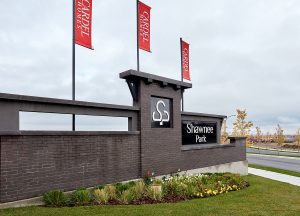 Courtesy Cardel Homes
Courtesy Cardel HomesSelinger says there have already been 61 single-family home sales and the first occupants will soon be moving into the multi-family Fish Creek Exchange project by Graywood Developments.
"There are a substantial number of homeowners living in Shawnee Park, so it's becoming a real neighbourhood," he said.
The area is full of attractive amenities, including a CTrain station and Fish Creek Park, he says, "and having schools in the area ready to go – it just meets all the requirements, it's what people are looking for."
Cardel worked hard to integrate the new community into the existing one, Selinger says. This included links to outside pathways that allow people to pass through the new community, a park that also serves residents from the surrounding area, and a landscaped buffer area running throughout the project to separate it from existing homes.
Selinger, who golfed at the former Shawnee Slopes course, says he knows the redevelopment was a big change, and a bit of a shock, for area residents.
"You lose a golf course and you feel bad, but not everybody's golfing anymore, it's not really a growing sport," he said. "If you do things right, you can do something to that land that creates more benefits for people, for families.
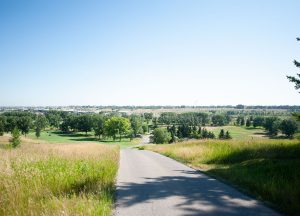 Cody Stuart / CREB®Now
Cody Stuart / CREB®Now"You've just got to watch the details, and if you do, there's a very good chance that you end up with something even better."
Ollenberger says more than 40 per cent of the land from the former Harvest Hills course will be green space in the completed Parks of Harvest Hills. Some of those green spaces border the backyards of homes that lined the fairways of the former golf course.
"We gave them the option to get a gate from their backyard straight onto the green space," he said. "Before, they had no access to the golf course unless they went and paid a green fee and played golf. Now they can come right off their backyard and go for a walk with their children."
Tagged: Calgary | Calgary Real Estate | Calgary Real Estate News | Calgary Real Estate News | Cambridge | Canada | Canadian Taxpayers Federation | Cardel Homes | City of Calgary | Feature | Fish Creek Exchange | golf | Graywood Developments | Hamptons Golf Club | Harvest Hills | Harvest Hills Golf Course | Housing Market | McCall Lake Golf Course | New Communities | Northern Hills Community Association | Popular This Year | QuantumPlace Developments | Richmond Green Golf Course | Shaganappi Point Golf Course | shawnee park | The Deeper Dive | university district | Vancouver


